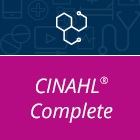Nursing & Health Sciences Research Journal
Abstract
Background: Bar Code Medication Administration (BCMA) has been shown to reduce medication errors and improve patient outcomes. The utilization of this technology-driven approach enhances patient care and has emerged as a potent strategy to decrease medication errors. Purpose: This project aimed to examine the impact of descriptive analytics in improving BCMA compliance to reduce medication errors in acute outpatient settings. Methods: In March 2021, baseline data revealed that overall BCMA compliance was 87%, with only 1 out of 20 outpatient units meeting the 95% benchmark. To enhance overall efficiency and effectiveness, our team took a multi-faceted approach, including streamlining the data file, involving nursing staff and leadership, and redesigning nursing workflows. Utilization of interactive pivot tables and slicers within the BCMA data file allowed for cogent conversations between nursing educators and staff to review areas of opportunity, barriers, override reasons, and technical reasons why medications could not be scanned. Results: Initial analysis of the data revealed variability across each center, with over 700 overrides and a compliance of 87%. After the implementation of the revised data file in October 2021, BCMA compliance improved to 97%, with a greater than 50% reduction in override entries noted. The results of a dependent t-test showed a statistically significant 10.4% point increase in BCMA compliance in the post-implementation phase (t[19] = -9.470, p < .001). Conclusions: Utilizing innovative data solutions for BCMA to bridge the gap between nursing education and practice can improve engagement, accountability, quality, and patient safety.
Recommended Citation
Post, J., Granados, S., Garcia, E., Arteaga, G., & Lopez, C. (2023). The Use of Descriptive Analytics to Improve Nursing Compliance with Bar Code Medication Administration in the Outpatient Setting. Nursing & Health Sciences Research Journal, 6(1), 111-121. https://doi.org/10.55481/2578-3750.1165
Creative Commons License

This work is licensed under a Creative Commons Attribution-NonCommercial-No Derivative Works 4.0 International License.


